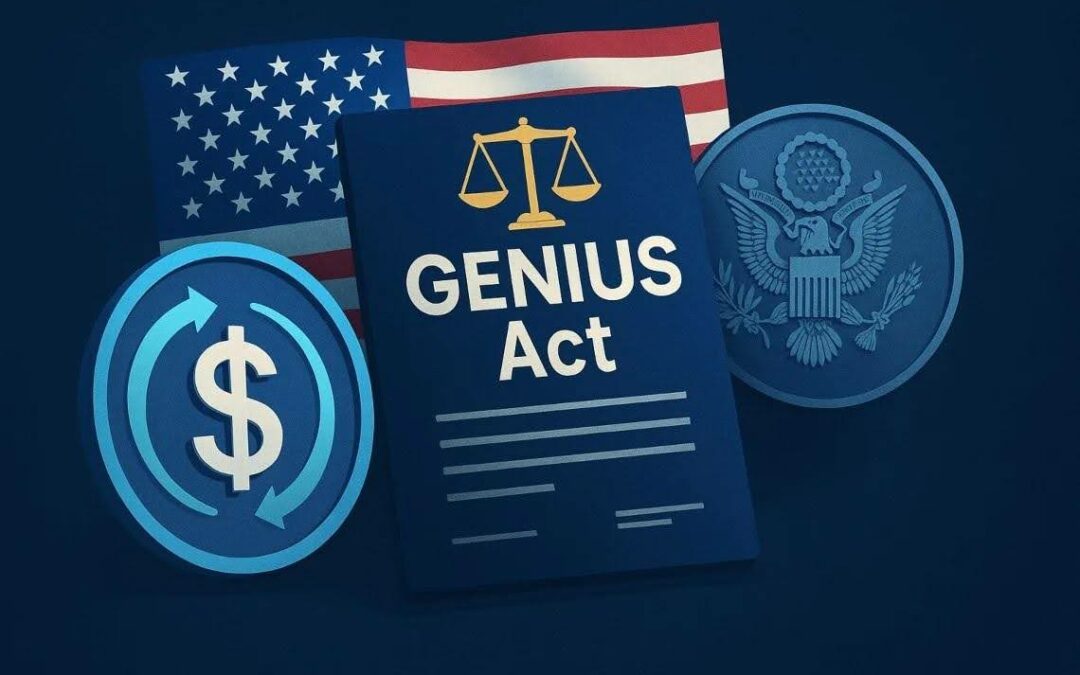What Is the GENIUS Act?
The GENIUS Act (Guaranteeing Effective and Neutral Innovation Using Stablecoins) is a proposed U.S. law aimed at setting clear federal standards for stablecoin issuance and management. Essentially, it seeks to make sure that stablecoins — digital tokens pegged to fiat currencies like the dollar — are safe, transparent, and fully backed by high-quality reserves.
It introduces licensing frameworks for stablecoin issuers, requiring them to maintain clear audit trails, hold cash-equivalent reserves, and operate under either state or federal charters. The goal? Protect consumers while encouraging responsible innovation.
Impact on Stablecoins
For stablecoin issuers like Circle (USDC) and Tether (USDT), the GENIUS Act could be a double-edged sword. On one hand, it legitimizes stablecoins in the eyes of regulators, investors, and traditional finance. On the other, it may create high compliance costs that smaller players can’t afford.
In the long run, this could consolidate the stablecoin market, favoring large, regulated issuers — and possibly paving the way for banks and fintechs to launch their own fully backed digital dollars.
What It Means for Banks
The GENIUS Act could finally open the door for traditional banks to issue stablecoins under federal oversight. That’s a big deal. It means banks could start offering blockchain-based payment services, cross-border transfers, and digital asset custody solutions — all backed by U.S. dollars and insured under existing financial safeguards.
If done right, this could bridge the gap between crypto and traditional finance, boosting liquidity and trust across both ecosystems.
Will It Help or Hurt Crypto Innovation?
Regulation always sparks debate in crypto circles. Some fear the GENIUS Act could stifle innovation by favoring institutions over startups. But others argue that clear rules attract capital, institutional players, and mainstream adoption.
Think of it this way: the GENIUS Act could turn the U.S. into a global hub for regulated stablecoins, encouraging developers to build DeFi apps, payment rails, and tokenized asset systems that rely on trustworthy digital dollars. In short, it could accelerate crypto’s integration into everyday finance.
The Bigger Picture
The GENIUS Act signals a shift: stablecoins are no longer a fringe concept — they’re becoming a core part of the global financial system. By setting clear guardrails, the U.S. could lead the next wave of crypto innovation rather than chase it.
As the law progresses, both crypto-native firms and traditional institutions will need to adapt fast. The winners will be those who embrace compliance as a foundation for scalable, sustainable innovation.

